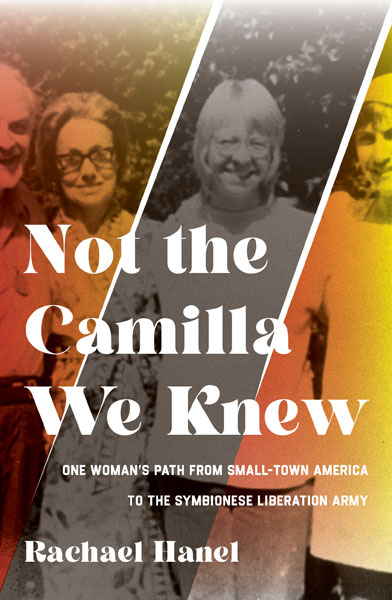
By Sarah James
You write as though you have a deep connection with Camilla; it’s almost spiritual at times, when did this start?
I came across Camilla’s story in 1999, or I came across her picture and I would say right away I was fascinated with seeing her picture, I was fascinated with the little information that went along with her picture- it was in the newspaper. It was just a little bit of information on how Camilla was from St. Peter, that she had become wrapped up in the SLA and I just felt like I wanted to know more. We were both from small town Minnesota so I felt just a geographical kingship with her, right from the beginning.
Not the Camilla We Knew does not follow a strict chronological narrative structure – what were you trying to get across with this?
I have the book divided into three parts- I wanted to spend the first part of the book setting up her life, her background, the second part goes into her life in California, becoming wrapped up in the SLA. Then the third part was a psychological look into her life, now we know the facts and the events, but why might this have happened?
It would have been easy to turn Camilla into a caricature – how did you make her so human, so multidimensional?
Once I started to dig more into her life and found she had these tragedies, her siblings preceding her in death, once I learned her first jobs were in social work, that she had this penchant for helping people – that is what I wanted people to know about her, that she had these great qulaities people loved about her. When people do outlandish, radical things often what we get is that very moment, we don’t take a look into why might they have done that. I wanted to get across to the reader she had this very complex life, she wasn’t just this one last thing.
How does your role as a journalist impact your research and writing process?
I did start my career as a journalist, I also have a degree in history so I love research. I write non-fiction and I teach nonfiction, and when I’m teaching one thing I like to talk about is the truth spectrum. There’s a lot of leeway we have as creative nonfiction writers to do a little more than you could writing a journalistic report. It’s important to me to let the reader know that any speculation is grounded in research, I’m not going to start assuming crazy things about people I am writing about- I want to get to know them first, then I’m more comfortable saying to the reader, “Oh, I’m speculating here.” Grounded in research is really important to me.
Do you believe the repeated losses in Camilla’s life drove her into the SLA, or was it more an act of political defiance?
I think we’ll never know for sure, but I can’t imagine that much loss in your life, of your siblings, not having an impact on the choices that you make. The SLA was a small group who were Camilla’s peers, she was one of the oldest but I don’t think it’s a leap to imagine she could have seen them as a family, as stand ins for siblings. But also, she was definitely politically motivated, she was frustrated, she spent many years trying to change the system, trying to help people and was met with roadblocks at every turn. She was complex, all life experiences likely fed into those final choices that she made.